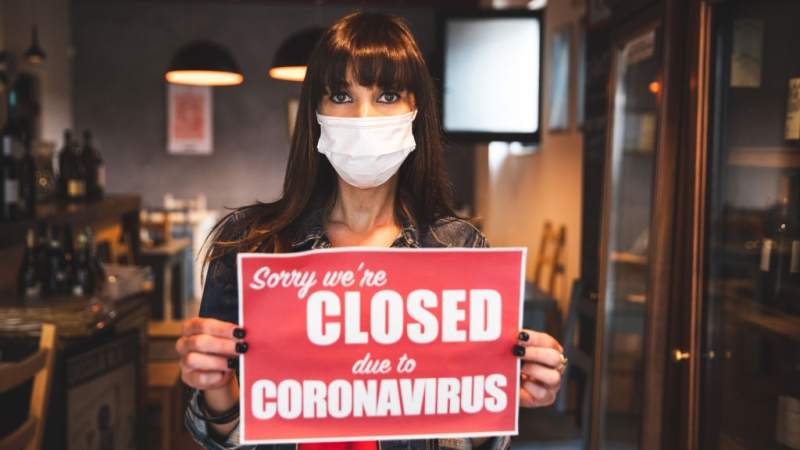Whether mandates like indoor dining bans are truly effective against the spread of COVID-19 is "the million-dollar question." | Stock Photo at Getty Images
Whether mandates like indoor dining bans are truly effective against the spread of COVID-19 is "the million-dollar question." | Stock Photo at Getty Images
The COVID-19 pandemic has forced state and local leaders to grapple with maintaining a strong economy while also protecting the health of their constituents.
Health officials have confirmed that indoor, maskless gatherings among people from different households significantly increase the risk of contracting the coronavirus, so states like Michigan have decided to heed the warnings of scientists and close indoor dining and some nonessential establishments to protect the public. But it comes at a cost.
In the Great Lakes states, Michigan has the lowest COVID-19 infection rate, at approximately 405 infected per one million people, but the unemployment rate is 6.9%, which is one of the highest in the region, according to Bridge Michigan.
Robert Gordon, the Michigan Health and Human Services director, said he believes the low infection rate in the state is proof that business restrictions are working, but the data on this isn't clear.
Lindsey Leininger, clinical professor of business administration at the Tuck School of Business at Dartmouth College, told Bridge Michigan there isn't enough data at this time to confirm whether business restrictions are the reason infection rates are comparatively lower in the state.
“To attribute cause and effect is a tough thing to do,” Leininger said, according to Bridge Michigan.
Both California and Tennessee have more than 1,000 infections per million people daily, and while California has enforced heavy restrictions, Tennessee has not issued a mask mandate or a ban on indoor dining.
Michigan Republicans like Senate Majority Leader Mike Shirkey (R-Clarklake) believe bans and mandates are detrimental to the state's economy. Rather, the use of informative, inspirational messaging to persuade the public to wear masks and do what is in their best interest is key to getting the health crisis under control.
“Use targeted actions. Fine-tuned messaging," Shirkey told Bridge Michigan. "Local businesses can’t inoculate themselves against shutdowns. There are no vaccines for bankruptcy."
Michigan and Illinois have enforced restrictions that have impacted the jobless rates in each state, but Minnesota also enforced a ban on indoor dining, and its unemployment rate is the lowest in the region at 4.4%, according to Bridge Michigan.
“There is definitely a tradeoff between restricting activity and the labor market situation,” Don Grimes, an economist and senior research specialist at the University of Michigan, told Bridge Michigan. “The question for policymakers is whether or not it's worth it, because of the lives and illnesses saved.”
Shirkey notes there is no evidence to suggest bans and mandates are bringing down infection rates in Michigan. "Enough is enough. Open the economy. Punish the bad actors, but don’t destroy jobs.”





 Alerts Sign-up
Alerts Sign-up